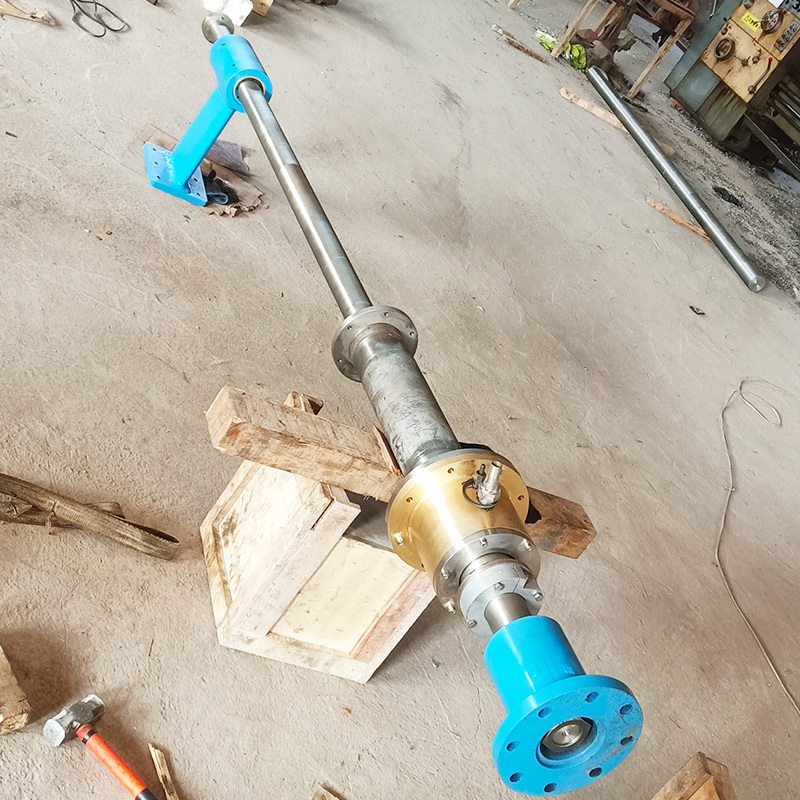Exploring the Durability of Stainless Steel Propellers in Marine Applications
Release Time:
May 17,2025
Exploring the Durability of Stainless Steel Propellers in Marine Applications Table of Contents Introduction to Stainless Steel Propellers What Are Stainless Steel Propellers? Benefits of Using Stainless Steel Propellers Durability in Marine Environments Stainless Steel vs Aluminum Propellers Choosing the Right Propeller for Your Vessel Maintenance Tips for Stainless S
Exploring the Durability of Stainless Steel Propellers in Marine Applications
Table of Contents
- Introduction to Stainless Steel Propellers
- What Are Stainless Steel Propellers?
- Benefits of Using Stainless Steel Propellers
- Durability in Marine Environments
- Stainless Steel vs Aluminum Propellers
- Choosing the Right Propeller for Your Vessel
- Maintenance Tips for Stainless Steel Propellers
- Common Issues and Solutions
- Conclusion
- FAQs About Stainless Steel Propellers
Introduction to Stainless Steel Propellers
In the marine industry, **propellers** play a crucial role in navigating the waters efficiently and effectively. Among various materials used for propeller manufacturing, **stainless steel** has become increasingly popular due to its remarkable durability and performance. In this article, we will explore the many advantages of stainless steel propellers, focusing on their durability in marine applications.
What Are Stainless Steel Propellers?
Stainless steel propellers are **marine propulsion devices** crafted from stainless steel alloys, which are known for their high resistance to corrosion and wear. These propellers are engineered to provide optimal thrust and maneuverability, making them a preferred choice for a wide range of vessels, from small fishing boats to large yachts.
Understanding Stainless Steel Alloys
The most common stainless steel alloys used for propeller manufacturing include 304 and 316 grades. Each alloy has unique properties:
- **Grade 304**: Known for its excellent corrosion resistance, making it suitable for freshwater and some saltwater applications.
- **Grade 316**: Offers superior corrosion resistance, especially in saltwater environments, making it ideal for marine use.
Benefits of Using Stainless Steel Propellers
Stainless steel propellers provide numerous benefits that enhance marine performance:
1. Enhanced Durability
Stainless steel propellers are designed to withstand harsh marine conditions. Their robust construction minimizes the risk of deformation, bending, or breakage, even when operating in challenging environments.
2. Superior Performance
These propellers typically feature a more streamlined design, which improves efficiency and speed. The **hydrodynamic shape** allows for better thrust and fuel efficiency, translating into smoother rides and reduced fuel costs.
3. Corrosion Resistance
The natural properties of stainless steel allow it to resist corrosion effectively, making it the perfect choice for vessels operating in saltwater. This resistance significantly extends the lifespan of the propeller, reducing the need for frequent replacements.
4. Aesthetic Appeal
In addition to functionality, stainless steel propellers offer a sleek and polished appearance, enhancing the overall aesthetic of the vessel.
Durability in Marine Environments
When evaluating the **durability** of stainless steel propellers, several factors come into play:
1. Resistance to Wear and Tear
Stainless steel propellers can endure significant wear and tear over time, even with constant exposure to saltwater and debris. Their ability to maintain structural integrity contributes to their long-lasting performance.
2. Impact Resistance
Unlike aluminum, which can easily bend upon impact, stainless steel's strength allows it to absorb shocks better, making it less susceptible to damage from underwater obstacles or debris.
3. Maintenance of Performance
As stainless steel propellers age, they tend to maintain their performance characteristics better than their aluminum counterparts. This is particularly important for vessels that rely on consistent performance, such as commercial ships and recreational boats.
Stainless Steel vs Aluminum Propellers
The choice between stainless steel and aluminum propellers often comes down to specific application needs. Here’s a comparative analysis:
1. Cost
Aluminum propellers are generally less expensive than stainless steel options, making them attractive for budget-conscious boaters. However, the long-term savings associated with stainless steel's durability can outweigh initial costs.
2. Weight
Aluminum propellers are lighter, which may benefit some smaller vessels. However, the added weight of stainless steel can enhance stability and control at higher speeds.
3. Performance
Stainless steel propellers typically offer superior performance, especially in terms of thrust and efficiency. They are less prone to cavitation, leading to better overall handling and fuel efficiency.
Choosing the Right Propeller for Your Vessel
Selecting the appropriate **stainless steel propeller** is crucial for optimal performance. Consider the following factors:
1. Vessel Type and Size
The size and type of your vessel will significantly impact propeller selection. Larger boats may require more robust propellers to handle increased loads, while smaller vessels can benefit from lighter options for improved maneuverability.
2. Engine Specifications
Understanding your engine’s horsepower and torque is essential. Matching the propeller size and pitch to your engine specifications ensures efficient propulsion and optimal performance.
3. Operating Conditions
Consider where you will primarily operate your vessel. If you frequently navigate in saltwater, opt for a high-grade stainless steel propeller for enhanced durability.
Maintenance Tips for Stainless Steel Propellers
Maintaining your stainless steel propeller is essential to prolong its lifespan and performance. Follow these tips:
1. Regular Inspections
Conduct regular inspections for signs of wear, pitting, or damage. Early detection can prevent larger issues down the line.
2. Cleaning
After each use, rinse your propeller with fresh water to remove salt, sand, and debris. This simple step helps prevent corrosion and buildup.
3. Polishing
Periodically polish your stainless steel propeller to maintain its shine and protective layer. This also helps reduce drag, improving overall performance.
4. Proper Storage
When not in use, store your vessel in a dry place or cover the propeller to protect it from the elements.
Common Issues and Solutions
Despite their durability, stainless steel propellers can encounter some issues:
1. Cavitation
Cavitation occurs when vapor bubbles form on the propeller surface, leading to damage. Ensure your propeller is correctly sized and pitched to minimize the risk.
2. Corrosion
While stainless steel is resistant to corrosion, it can still occur. Use appropriate cleaning solutions and protective coatings to prevent corrosion in harsh environments.
3. Damage from Debris
Marine debris can damage propellers. Consider installing a protective device or adopting safe navigation practices to minimize encounters with underwater obstacles.
Conclusion
In conclusion, **stainless steel propellers** offer exceptional durability, performance, and aesthetic appeal, making them an excellent choice for a variety of marine applications. By understanding their benefits, selecting the right propeller, and adhering to maintenance practices, boaters can maximize their marine experience. Investing in stainless steel propellers means investing in long-lasting performance and reliability on the water.
FAQs About Stainless Steel Propellers
1. How long do stainless steel propellers last?
Stainless steel propellers can last for many years, often outlasting aluminum alternatives due to their superior resistance to wear and corrosion.
2. Can I use a stainless steel propeller in fresh water?
Yes, stainless steel propellers are suitable for both freshwater and saltwater applications, though they are especially advantageous in saltwater environments.
3. What is the difference between 304 and 316 stainless steel?
Grade 304 offers good corrosion resistance, while Grade 316 provides superior resistance, particularly in saltwater. For marine applications, 316 is the better choice.
4. Are stainless steel propellers repairable?
Yes, many stainless steel propellers can be repaired if they sustain minor damage, depending on the severity of the issue.
5. How do I know what size propeller to choose?
Choosing the right size depends on your vessel’s specifications, including engine horsepower, boat size, and intended use. Consult manufacturer guidelines or a marine expert for assistance.
Keywords:
More information



